任务1
// 生成N个0~99之间的随机整数,并打印输出 #include <stdio.h> #include <stdlib.h> #include <time.h> #define N 5 int main() { int x, n; srand(time(0)); // 以当前系统时间作为随机种子 for(n=1; n<=N; n++) { x = rand() % 100; // 生成一个0~99之间的随机整数 printf("%3d", x); } printf("\n"); return 0; }
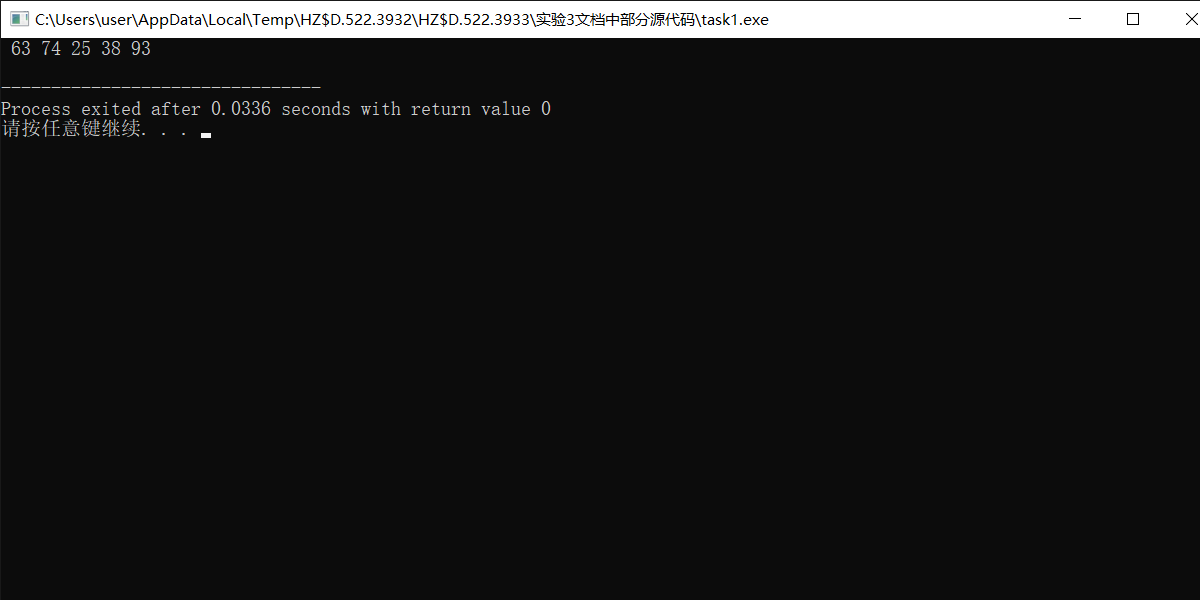
// 生成N个0~99之间的随机整数,并打印输出 #include <stdio.h> #include <stdlib.h> #include <time.h> #define N 5 int main() { int x, n; srand(time(0)); // 以当前系统时间作为随机种子 for(n=1; n<=N; n++) { x = rand() % 31+1;//生成1~31间的随机数 printf("%3d",x); } return 0; }

任务2
// 生成N个0~99之间的随机整数,并打印输出 #include <stdio.h> #include <stdlib.h> #include <time.h> int main() { int x,y,n; srand(time(0)); // 以当前系统时间作为随机种子 x = rand() % 31+1; // 生成一个0~99之间的随机整数 printf("猜猜2021年5月哪一天会是你的 luck day"); printf("你有三次机会哦,快来是试一试(1~31):"); for(n=1;n<=4;n++) { if (n<4){ scanf("%d",&y); if(x!=y) { if(x<y) { printf("你猜的幸运日晚了,lucky day悄悄溜到前面啦\n"); } else printf("你猜的幸运日早了,lucky day悄悄溜到后面啦\n"); } else { printf ("猜对啦!!") ;break; } } else {n--; n--; printf("你的机会用完啦,偷偷告诉你你的lucky day 是,%d",x); } } return 0; }
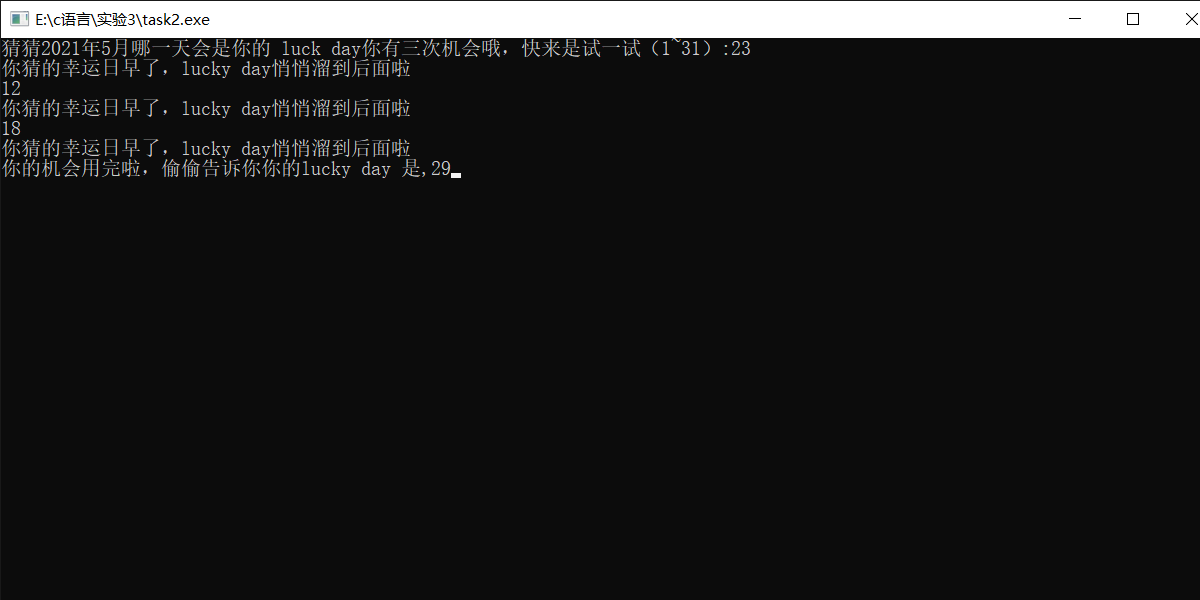
task3
#include <math.h>
#include <stdio.h>
int main(){
long x,y,z,n;
while( printf("Enter a number:"),scanf("%ld",&x)!=EOF)
{
z=0;
n=0;
while(x!=0){
y=x%10;
x=x/10;
if (y%2!=0){
n=n+y*pow(10,z);
z++;
}
}
printf("new number is:%ld\n\n",n);
}
return 0;
}
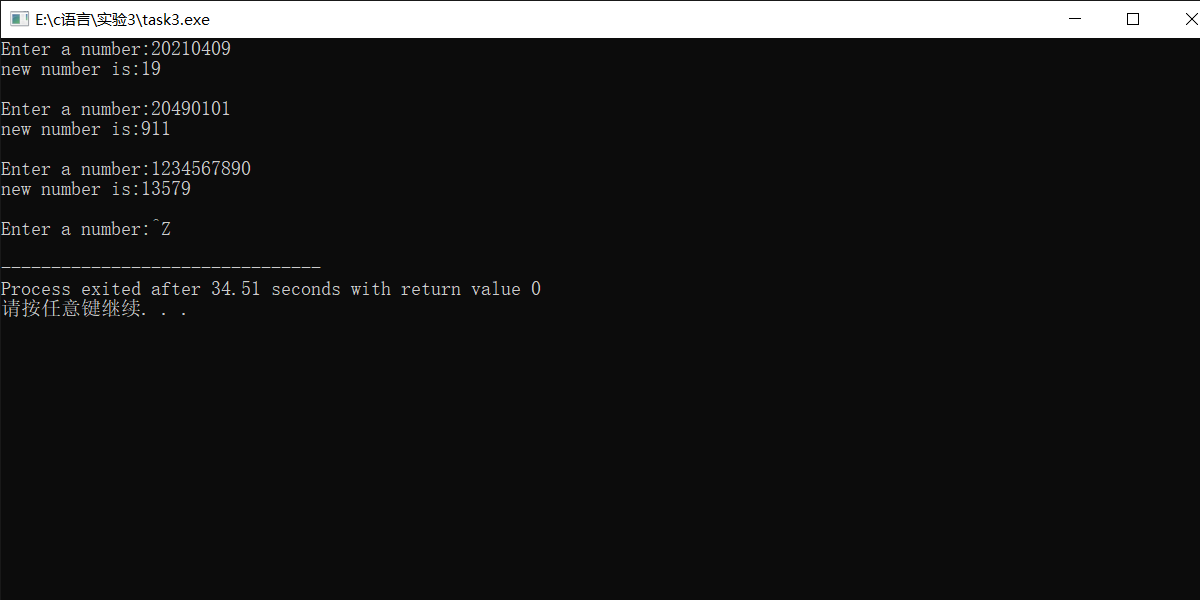
task4
// 一元二次方程求解(函数实现方式) // 重复执行, 直到按下Ctrl+Z结束 #include <math.h> #include <stdio.h> // 函数声明 void solve(double a, double b, double c); // 主函数 int main() { double a, b, c; printf("Enter a, b, c: "); while(scanf("%lf%lf%lf", &a, &b, &c) != EOF) { solve(a, b, c); // 函数调用 printf("Enter a, b, c: "); } return 0; } // 函数定义 // 功能:求解一元二次方程,打印输出结果 // 形式参数:a,b,c为一元二次方程系数 void solve(double a, double b, double c) { double x1, x2; double delta, real, imag; if(a == 0) printf("not quadratic equation.\n"); else { delta = b*b - 4*a*c; if(delta >= 0) { x1 = (-b + sqrt(delta)) / (2*a); x2 = (-b - sqrt(delta)) / (2*a); printf("x1 = %.2f, x2 = %.2f\n", x1, x2); } else { real = -b/(2*a); imag = sqrt(-delta) / (2*a); printf("x1 = %.2f + %.2fi, x2 = %.2f - %.2fi\n", real, imag, real, imag); } } }
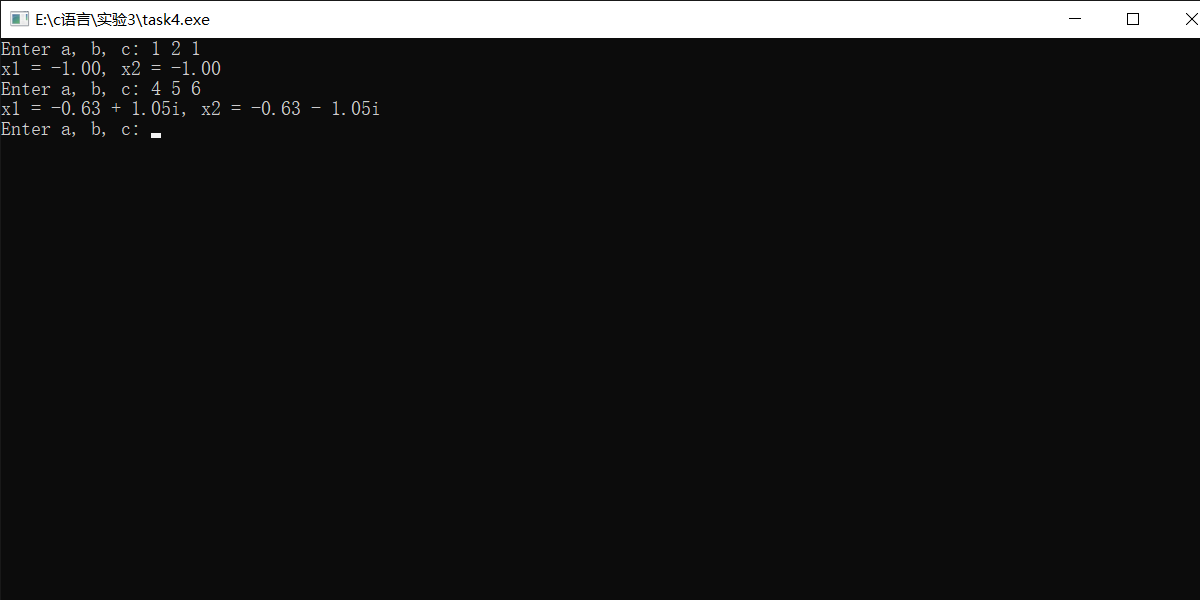
task5
#include <stdio.h> #include <math.h> double fun(int n); // 函数声明 int main() { int n; double s; printf("Enter n(1~10): "); while(scanf("%d", &n) != EOF) { s = fun(n); // 函数调用 printf("n = %d, s= %f\n\n", n, s); printf("Enter n(1~10): "); } return 0; } // 函数定义 double fun(int n) { int m,q,i; double p; m=1; p=0; i=1; while(m<=n) { for(q=1;q<=m;q++){ i=i*q; } p=p+(1.0/i)*pow(-1,m+1); m++; } return p; }// 补足代码 // ×××
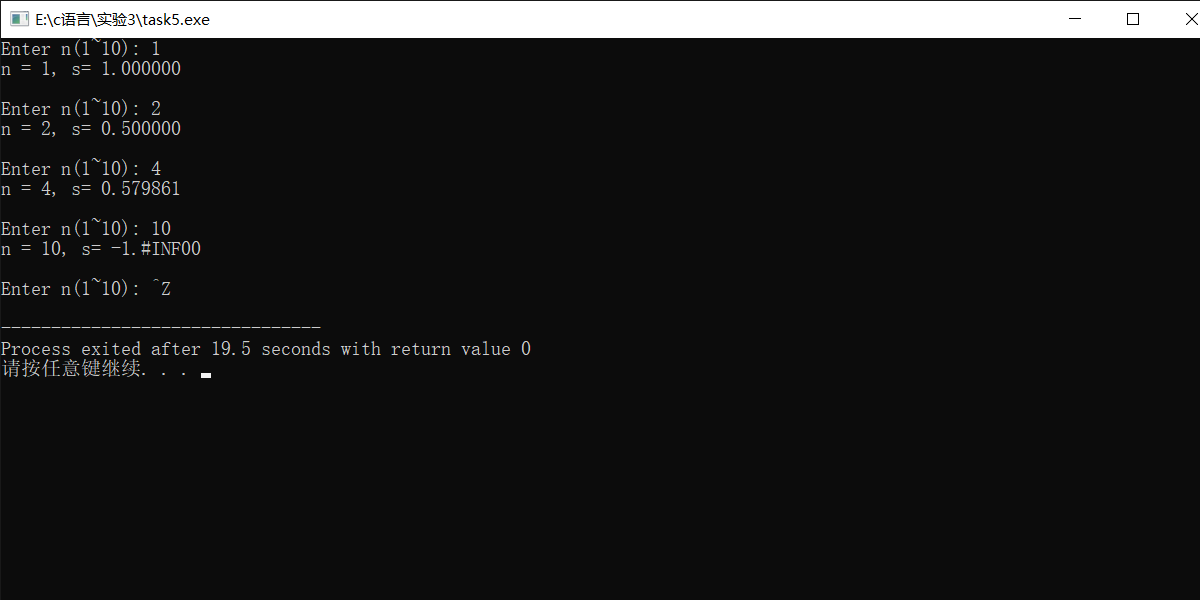
task6
#include <stdio.h> #include<math.h> int isprime(int x); int main (){ int x,m; m=0; for(x=100;x<=200;x++){ if (isprime(x)){ printf("%4d",x); m++; if(m%5==0){ printf("\n"); } } } printf("\n\n"); printf("100~200之间素数个数为:%d",m); return 0; } int isprime(int x){ int k; for(k=2;k<=sqrt(x);k++) { if(x%k==0){ return 0; } } return 1; }

实验总结:更加深刻地掌握了函数的调用、定义等等,对算法逻辑的理解也更深了。
不足:依然对知识运用不够熟练,此外小错误太多,对作业效率造成了很大困扰。



